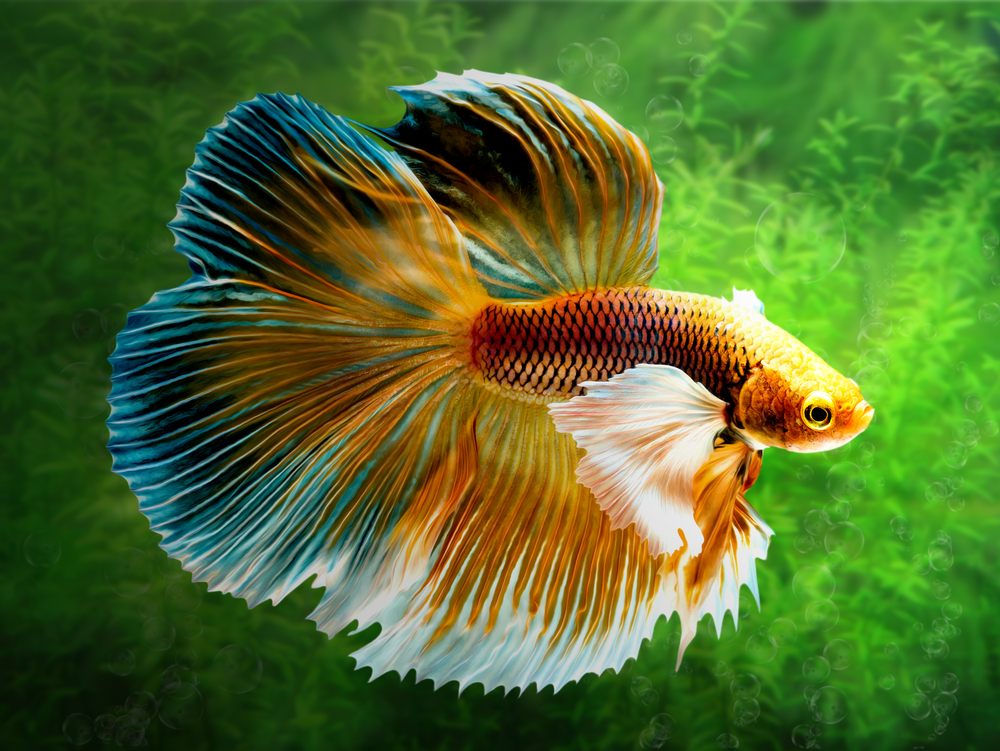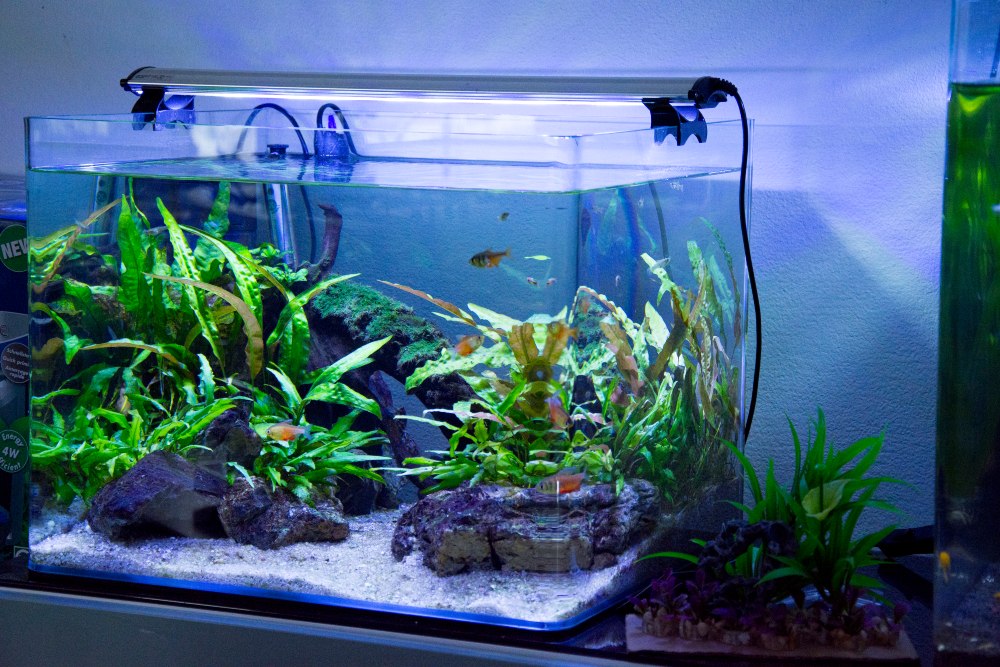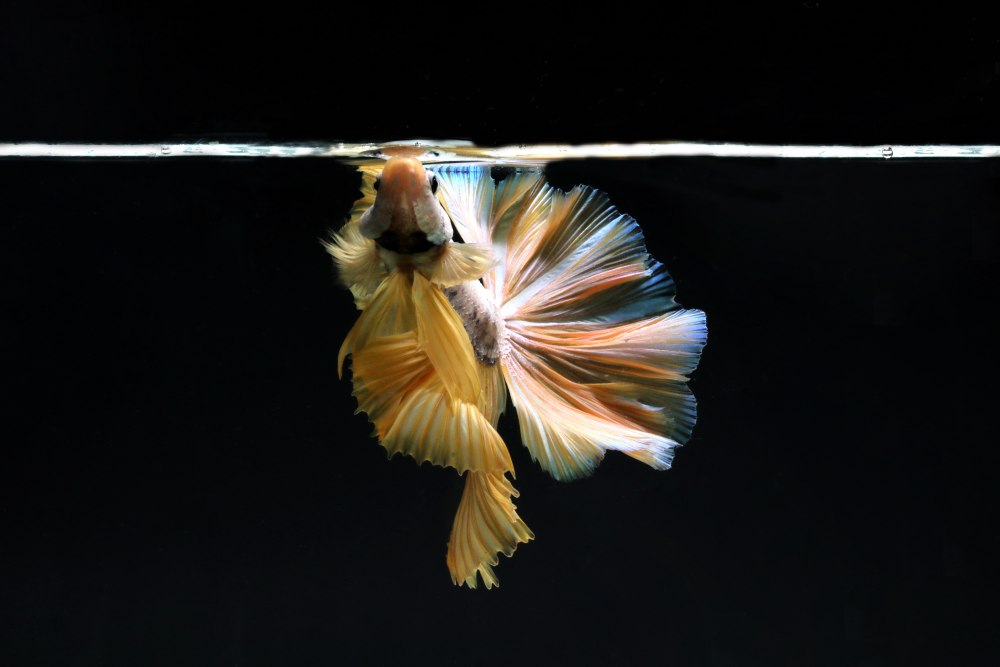Betta fish have a great appetite, and they are usually eager eaters, so if suddenly your betta fish is not eating, it’s a matter of concern. There are various reasons why your betta fish might have lost its appetite.
These reasons can vary from minor to major health issues. We’ll discuss the most frequent reasons for the topic in question and talk about the solutions as well.
Reasons your betta fish is not eating and what to do
Betta fish are sometimes picky eaters, but that isn’t the only reason for the fish not eating. While betta fish can go without eating for more than a week, there are likely underlying issues if your fish is not accepting the food you’re giving it.
Here are some of the common causes the siamese fighting fish might be avoiding food.
The betta fish isn’t able to adapt to the aquarium environment

If you have recently got your betta fish from the local pet store, adapting to the new water tank may be difficult for it. Therefore, the fish would prefer to hide in the aquarium until it finds its new home comfortable. But if your new tropical fish continues to avoid food for more than a week, they may be sick.
Changing homes is very stressful for bettas, and it is even worse if you are keeping it in a small vase or fishbowl. Bettas can’t live in small aquariums as they are used to the tropical waters and need to have large tanks to swim in.
To avoid stressing the betta fish, keep it in a large water tank, at least a five gallon one, so that it replicates the same natural environment.
Solution
- Provide your betta fish with a large environment that has lots of plants and places to hide
- Feed them food they love (and what be able to resist!) like blood worms, daphnia, frozen foods, and live foods.
- If bringing your betta home from the pet store or a breeder, do not immediately add them to a tank with other fish. First, let them get used to their new environment before introducing tank mates.
Unstable Water Parameters

If your betta fish isn’t eating food, check the water parameters immediately. Betta fish is susceptible to water conditions; even a slight change in the parameters will make the fish avoid eating.
Betta fish are used to living in hot tropical waters; hence, if the water temperature drops, it can harm the betta’s immune system. Moreover, keeping them in tank water that’s hotter than their comfort level will also affect their metabolism in a negative way.
The betta’s tank water temperature should be not too cold and not too hot. The ideal temperature should be between 75F to 80F.
Solution
- If you are changing aquariums, ensure the new one has the same water parameters.
- Keep a thermometer in the water tank and regularly check the temperature.
- Add a lamp inside the aquarium water to keep the water warm.
Fluctuation in water quality

If the water quality fluctuates continuously, it will stress out the betta fish, and the fish will stop eating. Poor water quality includes unstable pH levels, dirty water, fluctuating temperatures, and harmful bacterial growth in the betta tank.
As well, if you add too much of chemicals like chlorine or ammonia, it will affect the fish’s appetite, and the betta fish won’t eat.
Solution
- Aquarium water pH levels should always be between 6.8 to 7.5.
- Ensure the aquarium is clean at all times. If the water appears milky or cloudy, it’s time to add fresh water.
- Don’t let food particles or fish waste gather in the tank.
- Replace part of the water in the tank weekly. If you don’t have a filter, change around 30%-50% of the water, and if you have a filter, change around 20% of the water.
- If you are adding tap water, ensure it is free from chlorine and other toxic substance.
- Use a filtration system in the aquarium to keep it clean at all times.
- Let the freshwater sit for 24 hours before adding it to the aquarium.
Ammonia poisoning
Ammonia poisoning can also be the answer to your question why is my betta fish not eating. Too much ammonia in the aquarium water will make the fish lethargic, which ultimately will limit the appetite, and the fish will stop eating.
If the betta fish is getting red gills or breathing rapidly, it’s a sign that it is suffering from ammonia poisoning.
Solution
- Add a water conditioner like the API stress coat to clean the water from any toxic substance.
- Buy liquid test kits to check the ammonia levels regularly. Although these give just an estimate of the ammonia level, yet are beneficial for keeping the tank toxin-free. API master test kit is a great one to check water quality.
- Change 10% of the aquarium every hour until you change 40% of the water from betta’s tank. Don’t make the mistake of changing the entire water in one go; it will only harm the fish.
- To take care of the remaining ammonia in the tank, you can use an ammonia detoxifier like the Seachem Prime Fresh and Salt Water conditioner in the aquarium water. These detoxifiers are easily available in local pet stores as well.
- Add beneficial bacteria once you add the water conditioner. The gap between adding the two products should be 24 hours.
Nitrate poisoning
Another common reason your betta won’t eat it is nitrate poisoning. Nitrate levels above 20ppm or more are dangerous for the betta fish. When the fish is exposed to extended nitrate poisoning, you will find the betta fish laying on the tank bottom.
Nitrate poisoning can even cause swim bladder disease, and a common sign of the disease is the fish will swim upside down or sideways. To treat betta fish from not eating habits, you must be aware of these signs and symptoms to take immediate action.
Solution
- Add aquarium salt or marine salt mix in the water tank. (1 tablespoon salt per 5 gallons of water)
- Remove uneaten food from the tank regularly.
- Increase aeration to increase oxygen saturation in the fish tank.
- Don’t add any new fish in the same aquarium.
Changes in Betta’s diet
Betta fish is very particular about their diet. They are carnivorous fish and love eating freeze-dried food, frozen food, mosquito larvae, brine shrimp, and the like. But some hobbyists also feed them betta pellets and flake food available at the fish store.
Even after following a balanced diet and offering the best quality food, the fish might not want to eat. The reason may be that your betta fish got bored of its regular food.
Additionally, if the betta has been eating only freeze-dried foods or eating pellets and you’ve changed the diet to live food, your aquarium fish may not like this change.
Solution
- Try feeding your betta specially formulated pellets.
- Try altering between betta fish pellets to flake food and vice versa.
- Offer a mix of live food and dried food so that the betta does not get bored of its diet.
- Don’t overfeed them with too much food.
- Avoid poor quality or cheap food at all costs. Betta fish are picky eaters, so it won’t consume anything out of its liking.
You are overfeeding your betta fish
The reason your betta fish not eating is you are overfeeding it. Betta’s stomach is just about the size of an eyeball, so they don’t necessarily need as much food as you think they might need. The betta fish eat just twice a day so avoid sprinkling food every time you play with your new betta.
Solution
- Reduce the food quantity.
- The ideal food amount should be 2-4 pellets, 1-2 times daily.
The betta fish might be sick
Sickness can be another reason your betta fish is refusing to eat. But how will you know if your fish isn’t healthy?
When the fish gets sick, it will show visible signs like:
- Loss of color: When the betta fish turns pale, it’s a sign that it’s sick or not happy in the new environment.
- An increase in slimy water.
- Unnatural swimming in corkscrew patterns, floating, sideways swimming, abnormal motions.
- Change in their body shape, among other symptoms. You may notice an abnormally bloated stomach which may happen due to constipation. But bloating can also result from severe conditions like swim bladder disease or dropsy.
- Itching is also a common disease bettas catch easily. A betta with itching will avoid eating and spend most of its time scratching its body against aquarium substrates like gravels, plants, etc.
The disease can transfer to your new betta fish through tank mates, unhygienic water and environment, presence of toxins in the aquarium water, etc.
Solution
- Isolate your betta from other fish in the tank.
- If it lives in an isolated tank, find out the disease and treat it with dedicated medications.
- Clean the aquarium regularly to keep a healthy betta fish.
- Change the aquarium water periodically with adequate fresh water.
The male betta fish is busy making the bubble nest
The male betta fish is used to make a bubble nest at the aquarium surface and search for a female betta to enter and spawn with. At times the fish gets too occupied with the nest building that it refuses to eat food. This is not unusual or unhealthy behavior, and bettas can survive without food some quite some time.
Solutions
If your male betta lives in an isolated aquarium, you should try removing the bubble nest or find him a female companion for mating.
Things to know about feeding a betta fish
Betta fish needs special care if you want it to survive for longer, especially when it comes to feeding them. Let’s check a few things you must know about feeding them.
- The best way to keep your betta healthy is feeding them either half portion twice daily or a full portion once daily. You can opt for one morning feeding and another evening feeding to keep them happier.
- The recommended amount to feed betta is 1.8 grams daily. If you are giving it fish pellets, it should be no more than 1 to 2 pellets twice daily.
- Give them a mix of freeze-dried food, live food, frozen foods to avoid making them bored of a single food item.
Conclusion: why is my betta fish not eating?
There are many reasons for your betta fish to avoid eating food. Some reasons are related to different health conditions your betta fish my have, while others are related to their mood, mating time, or aquarium environment.
If you notice your fish avoiding food, observe it carefully for one or two days. Read the causes mentioned here to understand the root of the problem and apply solutions accordingly. If you find things are getting out of your control, get in touch with a professional.
